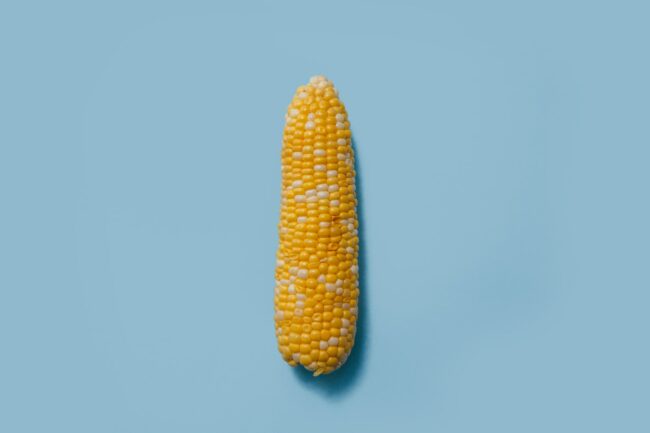Wondering about the journey corn takes through your digestive system? You’re not alone. Many of us enjoy corn but aren’t sure how our bodies handle this starchy vegetable. In this guide, we’ll delve into the nitty-gritty of corn digestion, offering a deeper understanding of the time it takes and the variables at play. We’ll even give you some helpful advice on optimizing your digestive process. Let’s get started!
Table Of Contents
−- The Corn Digestion Timeline: What You Should Know
- What Exactly is Corn?
- The Complexities of Corn Digestion
- Nutritional Goldmine: What Your Body Gets from Corn
- Insoluble Fiber and Digestion: What’s the Connection?
- Can You Spot Corn in Your Stool?
- The Journey to the Large Intestine
- Reaching the Digestive Finish Line
- Corn Varieties: Digestible vs. Indigestible
- Is Your Digestion Normal? How to Tell
The Corn Digestion Timeline: What You Should Know
When we talk about starchy vegetables like corn, the general digestion time ranges from 1 to 6 hours. This wide range is due to individual variations and factors such as insoluble fiber content, which can make it a bit challenging for the body to break down corn kernels. If you’re really keen on clearing out any undigested kernels, some experts recommend temporarily cutting corn from your diet for about a week. Knowledge of food digestion times can be invaluable for anyone keen to understand their own digestive health better.

What Exactly is Corn?
Though we often think of corn as a vegetable, it’s technically a seed. What’s interesting is that while the outer shell is indigestible, the inner part can be broken down normally by your digestive system, usually within six hours. Corn is rich in insoluble fiber, which, while making digestion a bit of a challenge, also helps regulate the digestive system. Corn is also packed with essential nutrients like carbohydrates, proteins, vitamins, and minerals.
The Complexities of Corn Digestion
The time it takes to digest corn is not cut and dried. With the insoluble fiber called cellulose in play, corn can take between 24 to 36 hours to be fully digested. This fiber is not easily broken down by the human digestive system, causing corn to spend a more extended period in transit. But it’s worth noting that corn can appear in your stool in as little as a few hours post-consumption.
Nutritional Goldmine: What Your Body Gets from Corn
Apart from being a tasty addition to your meals, corn is a robust source of essential vitamins and minerals. It’s rich in carotenoids, thiamine, riboflavin, niacin, pyridoxine, folate, ascorbic acid, vitamin E, and vitamin K. Though insoluble fiber in corn isn’t digestible, other components like proteins and carbohydrates are, which shows corn’s value in nutritional intake. In fact, studies have shown significant weight gains in pigs fed on a diet containing corn, indicating its nutritive value.
Insoluble Fiber and Digestion: What’s the Connection?
Insoluble fiber accelerates the digestive process as it doesn’t soak up water, potentially explaining why corn passes rather quickly through the digestive system. Even so, it’s crucial to recognize that insoluble fiber isn’t a source of vitamins or minerals like other fiber types. It does, however, add bulk to your stool, aiding in more straightforward elimination.
Can You Spot Corn in Your Stool?
Yes, seeing corn in your stool is pretty common, and this is down to the indigestible insoluble fiber. In terms of timing, corn can be noticeable in as soon as a few hours after you eat it but can remain in your system for up to 36 hours, depending on individual digestive health.
The Journey to the Large Intestine
Food, once in the small intestine, generally takes 4 to 6 hours to move into the large intestine. Here, water and electrolytes are absorbed, and leftover food particles are collected for eventual elimination. Starchy vegetables like corn can take longer, up to 24 hours, to complete this journey because of the complexity added by insoluble fiber.
Reaching the Digestive Finish Line
Generally, the digestive process wraps up within 24 to 72 hours, with nutrients absorbed and waste prepared for elimination. Factors like the type of food and individual digestive systems can influence this timeline. Starchy veggies like corn may take a bit longer than others to complete the digestive journey.
Corn Varieties: Digestible vs. Indigestible
Corn comes in both digestible and indigestible varieties. While some are rich in starches and sugars that are easy for our bodies to break down, others contain undigestible cellulose and fibers. A technique called nixtamalization can improve the digestibility of corn-based products like tortillas by breaking down these fibers and making starches more readily available.
Is Your Digestion Normal? How to Tell
If you’re questioning the normalcy of your digestion, it might be helpful to consult a healthcare professional, especially if you experience discomfort like abdominal pain or bloating. Normal digestion is often characterized by regular bowel movements, clear and odorless stools, and a sense of fullness post-meal. Maintaining a balanced diet rich in fiber and proper hydration can also contribute to smooth and efficient digestion.
There you have it—everything you need to know about how long corn takes to digest. Understanding this process not only satisfies your curiosity but also contributes to a better understanding of your digestive health.

Editorial Staff
Our writers, editors, content managers, and SEO specialist. We all take part in crafting amazing articles. We spend hours ensuring that each article is based on facts, researched, and thorough. You'll never want to click the back button to look for more answers other than here!
